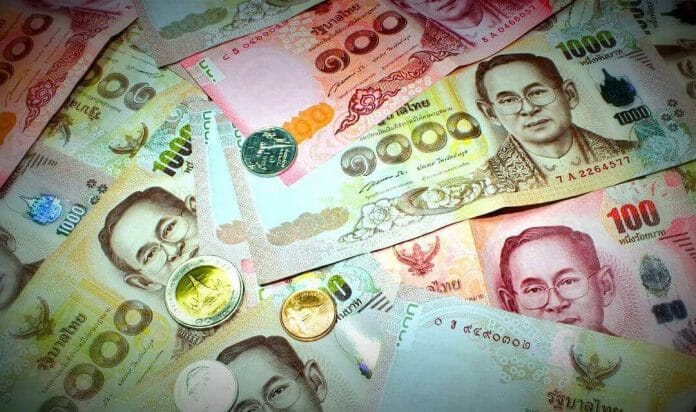The Thai baht was the sole gainer among emerging Asian currencies, seeing its best day in more than a month after a surprise win by the country’s opposition parties on Sunday (May 14) sparked a rally, even as shares fell.
The baht on Monday rose as much as 0.8% to trade at 33.705 against the US dollar to see its best day since early April. Equities in the tourism-reliant economy, fell about 1.3% to a week’s low, after rising in early trade.
Sunday’s election results showed that the Move Forward Party secured the top place over the parties allied with the military, setting the stage for a flurry of deal-making over forming a government in a bid to end nearly a decade of conservative, army-backed rule.
“It’s quite uncertain at this point so both the baht and SET index could be quite volatile in sideway trend until it becomes clear which party will decide to form a coalition government with the Move Forward Party,” Poon Panichpibool, Markets Strategist at Krung Thai Bank said.
The benchmark was dragged predominantly by the utilities sector, after an election promise by the Move Forward party indicated a reduction in electricity costs.
Shares in Gulf Energy Development dropped 6.7% and Global Power Synergy fell 5.2%.
Thailand’s equities declined with uncertainty over the composition of a coalition government after Sunday’s election weighing on traders.
The benchmark SET Index fell as much as 1.3% on Monday, set for a third straight session of losses. The biggest decliners included construction services and industrial materials providers.
The opposition bloc led by Move Forward and Pheu Thai parties were on course to win more than 280 seats in the 500-member House of Representatives, according to the Election Commission. Even so, it’s unclear if the pro-democracy parties will be able to form a government, while Move Forward’s gains represent a challenge for a political establishment revolving around the monarchy.
“Projected election outcomes are not leading to a clear-cut outcome and uncertainty will remain high in the near term,” a team of Morgan Stanley economists and strategists including Min Dai wrote in a note. “Investors will focus on the outcomes of coalition talks, as well as how specific policy proposals will play out as talks begin.”
Stocks associated with Pheu Thai, which is linked to exiled former premier Thaksin Shinawatra, retreated as the Move Forward Party was ahead in winning total seats and popular votes. The latter is the only major party calling for changes to allow greater freedom to discuss the royal family. Perceived opposition to the royal family has been used as a pretext to dissolve political parties over the past few decades.
Investors had been pinning their hopes on the general election to revive Thailand’s stock market, which is the worst performing in Asia this year. The SET Index has slumped more than 7% year to date, compared with a 3.2% gain in the MSCI Asia Pacific Index.
Meanwhile, other currencies such as the Singapore dollar, Malaysian ringgit, Indonesian rupiah and the South Korean won slipped in the range of 0.1% and 0.5%.
Investors stayed on the sidelines ahead of a slew of economic data from China in the coming days to judge global financial health, while the country kept its interest rates unchanged, despite concerns of a economic downturn.
Separately, market players remained cautious after weak consumer sentiment data from the US pointed to a deteriorating economic outlook.
Markets are still pricing a peak in Fed funds rates and are seeing 70 basis points in cuts by the end of this year, after the inflation data last week supported the case of Fed pausing given the slowing inflation.
Additionally, uncertainty regarding the raising of the debt ceiling for the US weighed on investor sentiment, where President Joe Biden is set to meet congressional leaders in order to raise the nation’s debt limit to avoid a default.
Among share markets, equities in Singapore, Malaysia, India and China dropped between 0.1% and 0.7%.







